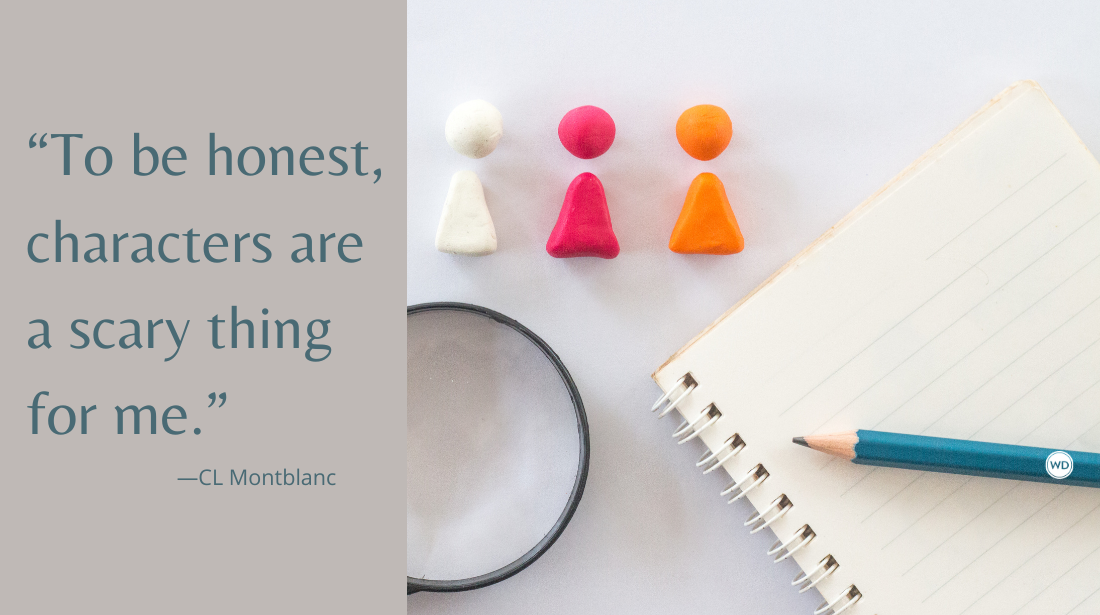How To Write a Protagonist Leading a Double Life
Inspired by personal experiences, author Kyla Zhao discusses how to write a protagonist leading a double life.
In my debut novel The Fraud Squad, my main character Samantha Song is a working-class woman who pretends to be a socialite in order to get her dream at Singapore’s poshest and snobbiest magazine. This means trading her flip-flops for Fendi, her casual coffeeshops for champagne lounges, and knowing how to talk the right talk and walk the right walk among the country’s elites.
When Samantha successfully infiltrates high society, she finds herself now hanging out with people whose last names are inscribed on the sides of buildings she used to walk past on her way to work, people whom she thought she would only ever know about from the luxury magazines she loves to read. Compounding her fish-out-of-water impostor syndrome is the mysterious gossip columnist hunting for high society dirt, who might expose her socialite fraud at any moment.
While I don’t share Samantha’s aspirations, I’ve also felt like a fraud at various points in my life. I believe this sentiment is especially common for people of color, who are often treated as outsiders in social situations and carry the responsibility of assimilation. When I moved from Singapore to California to attend Stanford University, I went from being surrounded by people who look like me to living by myself—without any family or friends—in a predominantly white elite institution.
Suddenly, I was sharing a dormitory with the scions of the world’s wealthiest families, whose last names are emblazoned on my school’s buildings. Even though we were of the same age, they appeared so much more mature and sophisticated. There were many times when I laid awake in my bed at night, wondering what I was doing in the same place as those people and worrying about whether I belonged there with them.
Even today, that sense of impostor syndrome has never fully left me. While my academic background is in the social sciences and humanities, I now work at a technology company (like the majority of Stanford graduates, since our alma mater is located in the heart of Silicon Valley). Although my career seems to progress smoothly, I sometimes can’t help but wonder what I’m doing in a STEM field among coworkers who studied computer science, engineering, and other technical subjects. I almost feel like I’m leading a double life a la my childhood hero Hannah Montana—switching from my 9-to-5 job in tech to my 5-to-9 job as an author.
But the silver lining of my impostor syndrome is that I have been able to draw on my personal feelings to write a character who is quite literally an impostor. I know what it feels like to come from an ordinary background and enter an elite environment where every person seems more incredible than the next. I captured those feelings and used those as inspiration for Samantha—how she feels breaking into the upper echelon of society where she knows she doesn’t truly belong; the tenuous balancing act she must maintain as she straddles two very different worlds; and more importantly, how she tries her best to reconcile these distinct facets of her life.
IndieBound | Bookshop | Amazon
[WD uses affiliate links.]
As I know very well, it’s easy to get swept up in the glamorous whirlwind of a new life and lose a part of yourself—something Samantha learns the hard way in The Fraud Squad. And at work, I sometimes feel like a fraud who might be found out at any moment, just like how my main character Samantha frets about being busted for her socialite ruse.
Many readers have told me that even though they aren’t familiar with high society, they could easily relate to Samantha’s desires and fears because they have personally experienced impostor syndrome before—be it at school, work, or in a social setting. We are taught from a young age to “fake it till you make it” and almost all of us learn to do that: code-switching and putting on a front to help us fit in.
People like Samantha just take it one step further. And as much as we know it’s not right, I think a part of us can’t help but admire their boldness and how unabashedly they go after what they want.
Kyla Zhao had her first women’s magazine byline at the age of 16, writing about weddings for Harper’s Bazaar Singapore before she even had her first kiss. Since then, she has also written for the Singapore editions of Vogue and Tatler. A native Singaporean, Kyla now works in Silicon Valley after graduating from Stanford University in 2021. She’s still trying to understand why Californians adore hiking and Patagonia fleeces so much. Subscribe to her newsletter or email her at kyla@kylazhao.com; you can find her on Twitter, Instagram, and TikTok.








